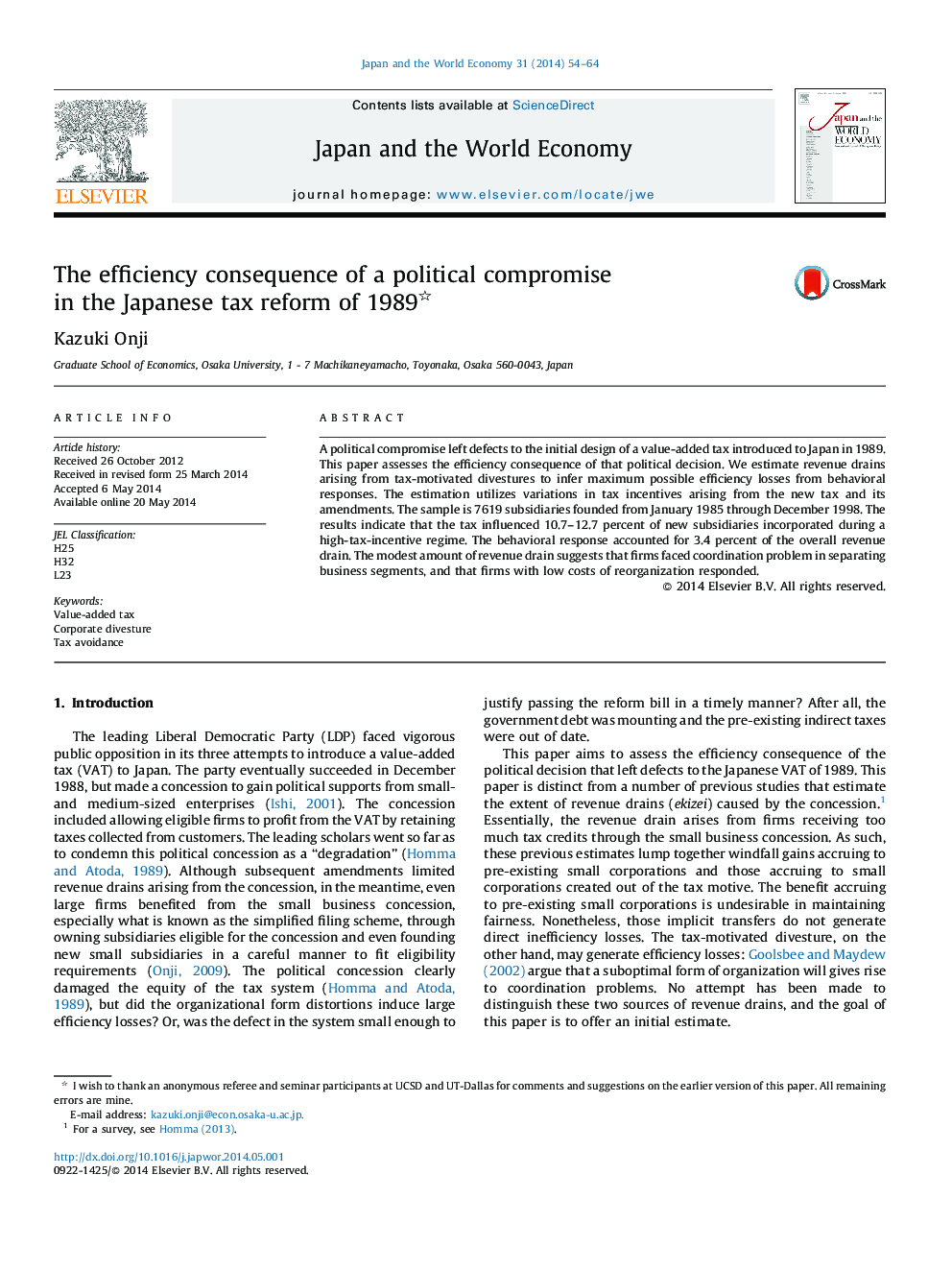| کد مقاله | کد نشریه | سال انتشار | مقاله انگلیسی | نسخه تمام متن |
|---|---|---|---|---|
| 5086085 | 1478159 | 2014 | 11 صفحه PDF | دانلود رایگان |
- How bad is a political compromise in an otherwise efficiency-improving tax reform?
- We examine Japan's introduction of a value-added tax in 1989.
- A political compromise created incentives to divest business segments.
- Tax-motivated divestures occurred selectively.
- Behavioural responses did not induce large efficiency losses.
A political compromise left defects to the initial design of a value-added tax introduced to Japan in 1989. This paper assesses the efficiency consequence of that political decision. We estimate revenue drains arising from tax-motivated divestures to infer maximum possible efficiency losses from behavioral responses. The estimation utilizes variations in tax incentives arising from the new tax and its amendments. The sample is 7619 subsidiaries founded from January 1985 through December 1998. The results indicate that the tax influenced 10.7-12.7 percent of new subsidiaries incorporated during a high-tax-incentive regime. The behavioral response accounted for 3.4 percent of the overall revenue drain. The modest amount of revenue drain suggests that firms faced coordination problem in separating business segments, and that firms with low costs of reorganization responded.
Journal: Japan and the World Economy - Volume 31, August 2014, Pages 54-64
